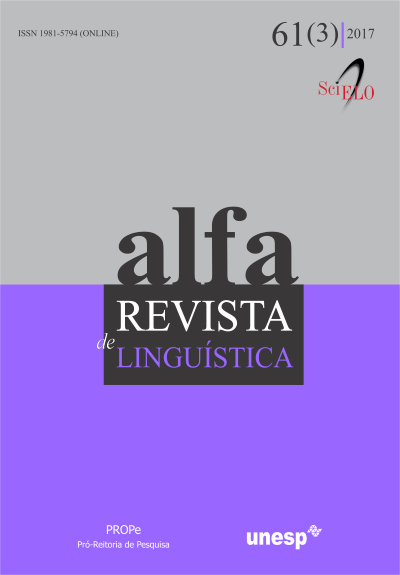The language of critical colaboration in agency’s development of the high school teachers in service
DOI:
https://doi.org/10.1590/1981-5794-1711-7Keywords:
Critical collaboration, Critical collaborative research, Relational agency, Transformative agency,Abstract
This article discusses the language of critical collaboration in high school teachers’ agency development (EDWARDS, 2005, 2007; YAMAZUMI, 2007; ENGESTRÖM, 2007, 2008, 2009, 2011; ENGESTRÖM AND SANNINO, 2011; VIRKKUNEN, 2006a, 2006b) during the teacher education project LEDA - Reading and Writing in Different Areas, held in a São Paulo State public school. Methodologically, the project is anchored in the Critical Collaboration Research (PCCol) (MAGALHÃES, 2009; 2011; 2012), characterized as an intervention research focusing on desencapsulation and transformation of school learning. It is organized in fortnightly meetings with the participation of six teachers from different knowledge areas, 1 pedagogical coordinator of Language Area, and 4 Applied Linguistics researchers. The training meetings focus on the relationship between the participants from the discussion of didactic and pedagogical practices. Based on the analysis of data collected through video recording, preliminary results highlight changes in the senses and meanings attributed by the school participants about the pedagogical teaching practices at the classroom, which seems to indicate consciously and theoretically grounded positions taken by the participating teachers, revealing the development of relational and transformative agency and the emergence of a responsive professional practice.Downloads
Download data is not yet available.
Downloads
Published
19/12/2017
How to Cite
NININ, M. O. G.; MAGALHÃES, M. C. C. The language of critical colaboration in agency’s development of the high school teachers in service. ALFA: Revista de Linguística, São Paulo, v. 61, n. 3, 2017. DOI: 10.1590/1981-5794-1711-7. Disponível em: https://periodicos.fclar.unesp.br/alfa/article/view/8548. Acesso em: 1 mar. 2026.
Issue
Section
Papers
License
Manuscripts accepted for publication and published are property of Alfa: Revista de Linguística. It is forbidden the full or partial submission of the manuscript to any other journal. Authors are solely responsible for the article's content. Translation into another language without written permission from the Editor advised by the Editorial Board is prohibited.

